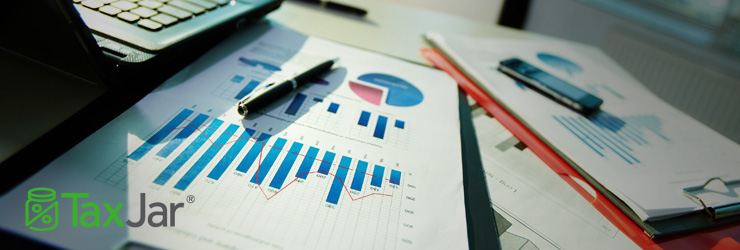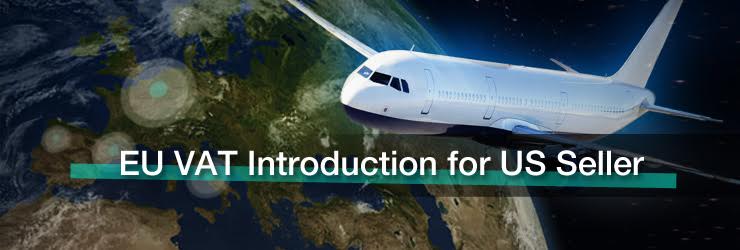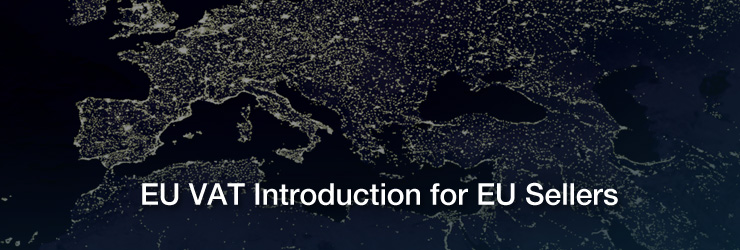5 Vital Things Amazon FBA Sellers Need to Know about Sales Tax

Selling on Amazon FBA is a great way to outsource many of the most labor-intensive aspects of running an eCommerce business. But with that comes some trade-offs. One thing Amazon doesn’t handle for 3rd party sellers is sales tax compliance. This post will guide you through what you need to know about sales tax compliance as an Amazon FBA seller.
(1) The Basics of U.S. Sales Tax
Unless you’re lucky enough to live in one of the 5 U.S. states without a sales tax (Alaska, Delaware, Montana, New Hampshire, and Oregon), you’re probably pretty familiar with paying an extra percentage of each product purchase in sales tax. As an online seller though, sales tax is a bit more complex.
Forty-five states and Washington D.C. all require retailers to collect sales tax. Most states also let local areas like counties, cities and other special taxing districts collect sales tax, as well. That’s why you’ll sometimes pay 5% sales tax in one location in your state, then drive 20 minutes and find yourself paying 7.25%.
As an online seller, you are considered a retailer and are required to collect sales tax if you meet certain criteria.
(2) When to Register for a Sales Tax Permit
Sales tax nexus is just a fancy legalese way to say “significant connection” to a state. If you have nexus in a state, then that state considers you on the hook for charging sales tax to buyers in the state. You’ll always have sales tax nexus in your home state, but you may find that certain business activities create nexus in other states, too. They include:
A location – an office, warehouse, store, or other physical place of business
Personnel – an employee, contractor, salesperson, installer or other person doing work for your business
Inventory – Most states consider storing inventory in the state to cause nexus even if you have no other place of business or personnel. (This is the aspect of nexus that affects many FBA sellers.)
Affiliates – Someone who advertises your products in exchange for a cut of the profits creates nexus in many states
A drop shipping relationship – If you have a 3rd party ship to your buyers, you may create nexus
Selling products at a trade-show or other event – Some states consider you to have nexus even if you only sell there temporarily
If you have nexus in a state, then that state requires that you register for a sale tax permit and collect sales tax from buyers within the state.
To help you determine whether or not your business activities give you sales tax nexus, you can find out what every state’s laws have to say about nexus here.
(3) How to Collect Sales Tax on Amazon FBA
Fortunately, Amazon FBA has a robust sales tax collection engine. You just need to set up your state sales tax collection settings and your product tax codes and Amazon will do the rest.
State sales tax collection settings
To collect sales tax correctly, Amazon requires that you tell them in which states you want to collect, and what sales tax amounts you want to collect there. They also ask you if you want to collect sales tax on shipping charges and sales tax on gift wrapping charges. Here you can find a step-by-step guide to setting up your Amazon sales tax settings in each state.
Product tax codes
Some products categories are non-taxable in some states. For example, clothing is not taxable in Pennsylvania, and groceries are taxed at a reduced rate of 1% in Illinois. For this reason, it is important to code your products with the correct “product tax codes” so that you charge the right amount of sales tax (or no sales tax at all) in each state. You can find out more about setting up your Amazon product tax codes here.
(4) How to Report the Sales Tax You Collected
When it comes time to file your sales tax returns, you first step is to report how much sales tax you’ve collected in each of your nexus states. In most states, this means not only figuring out how much sales tax you collected from buyers in the entire state, but breaking that amount down by county, city and other special taxing jurisdiction. Trying to do this by hand can be a nightmare! And it’s even tougher if you sell on more than one eCommerce platform.
Instead of poring over spreadsheets and state tax tables to try and figure out the sales tax rate at each of your buyer’s addresses, try sales tax automation. A sales tax automation tool will connect with all the shopping carts and marketplaces on which you sell, and provide you with return ready-reports that you can use to file your sales tax returns in minutes, not hours.
(5) How to File a Sales Tax Return
Your final step in the sales tax cycle is to file a sales tax return with your state. Be sure you file on time. You can find your state sales tax due dates here.
There are a couple of important things to keep in mind when filing your sales tax returns:
File “zero returns” – File a sales tax return even if you didn’t collect any sales tax over the filing period. States consider these “zero returns” to be a check-in letting them know that you’re still in business. Worse, some states will fine or penalize you for failing to file a sales tax return – even if you didn’t owe a penny. Yikes!
Account for discounts – On the other hand, about half of the states with a sales tax realize that they are burdening you by asking you to collect sales tax on their behalf. For that reason, they allow retailers who file sales tax on time to keep a very small percentage of the sales tax you’ve collected. Though this percentage is usually just 1 or 2% of the sale tax you collected, it’s free money – so don’t leave it on the table!
I hope this post has helped you get a handle on the basics of FBA sales tax. For more info, check out our Sales Tax for Amazon FBA Sellers whitepaper or join more than 6,000 sellers and sales tax professionals in our Sales Tax for eCommerce Sellers Facebook group.
TaxJar is a service that makes sales tax reporting and filing simple for more than 7,000 online sellers. Try a 30-day-free trial of TaxJar today and eliminate sales tax compliance headaches from your life!









Leave a Reply